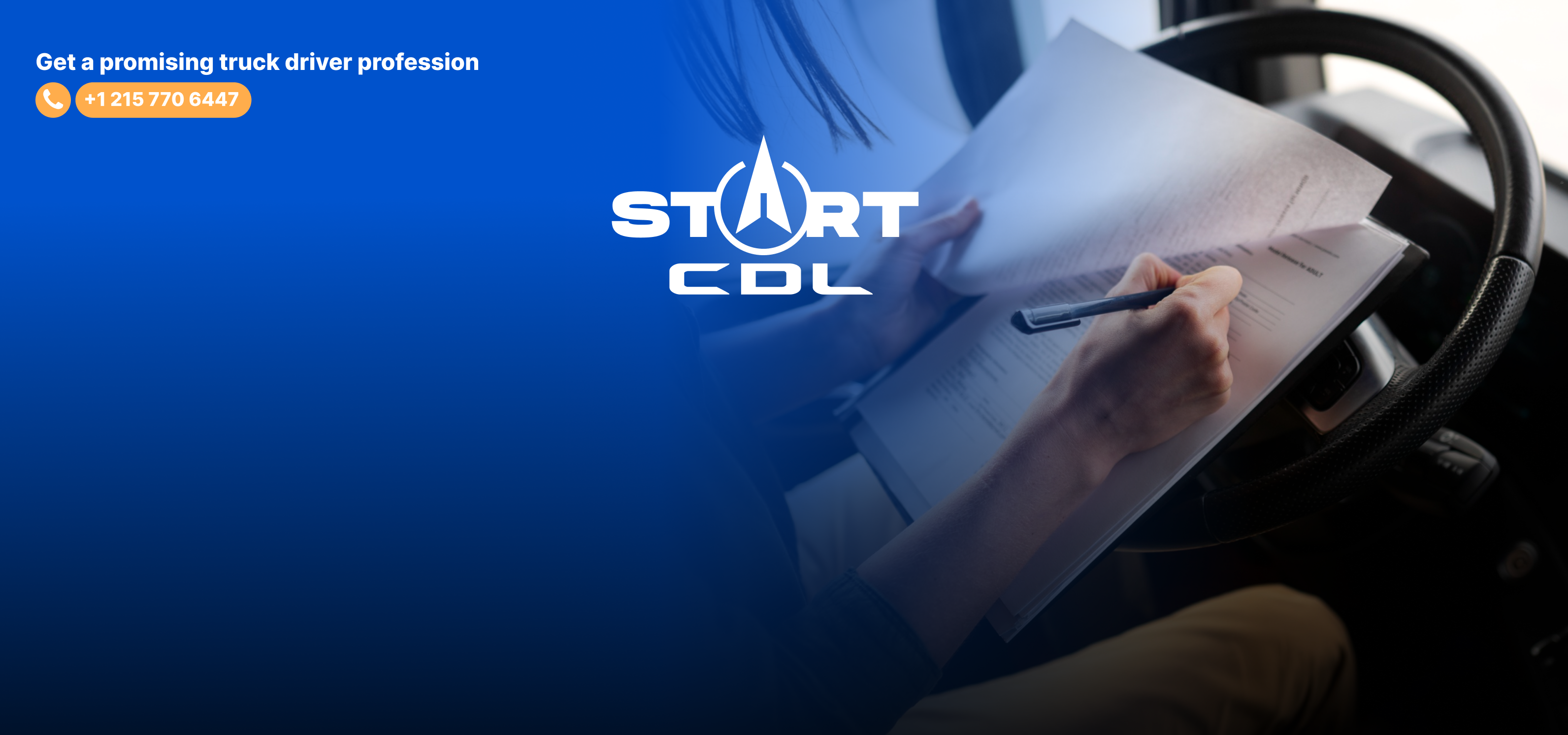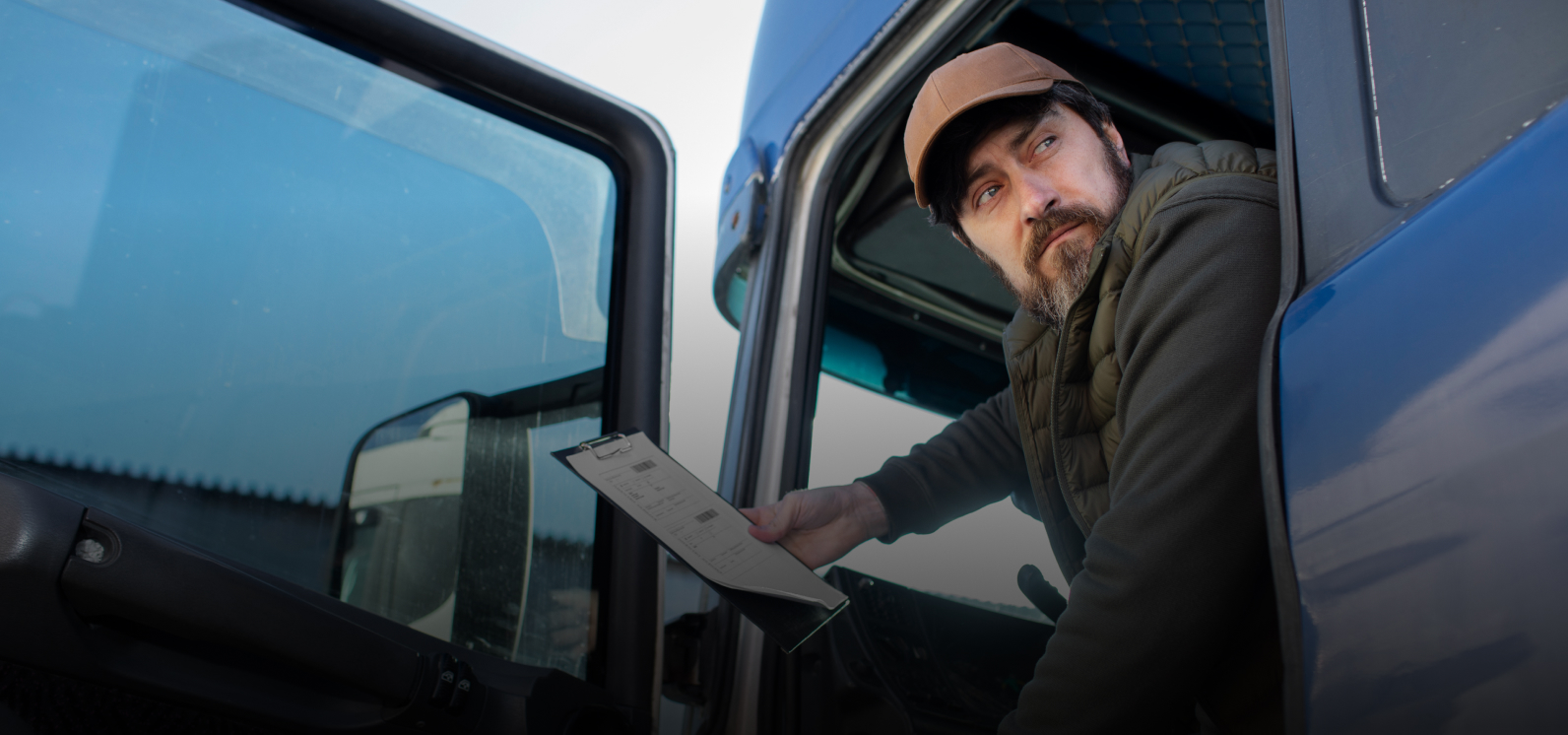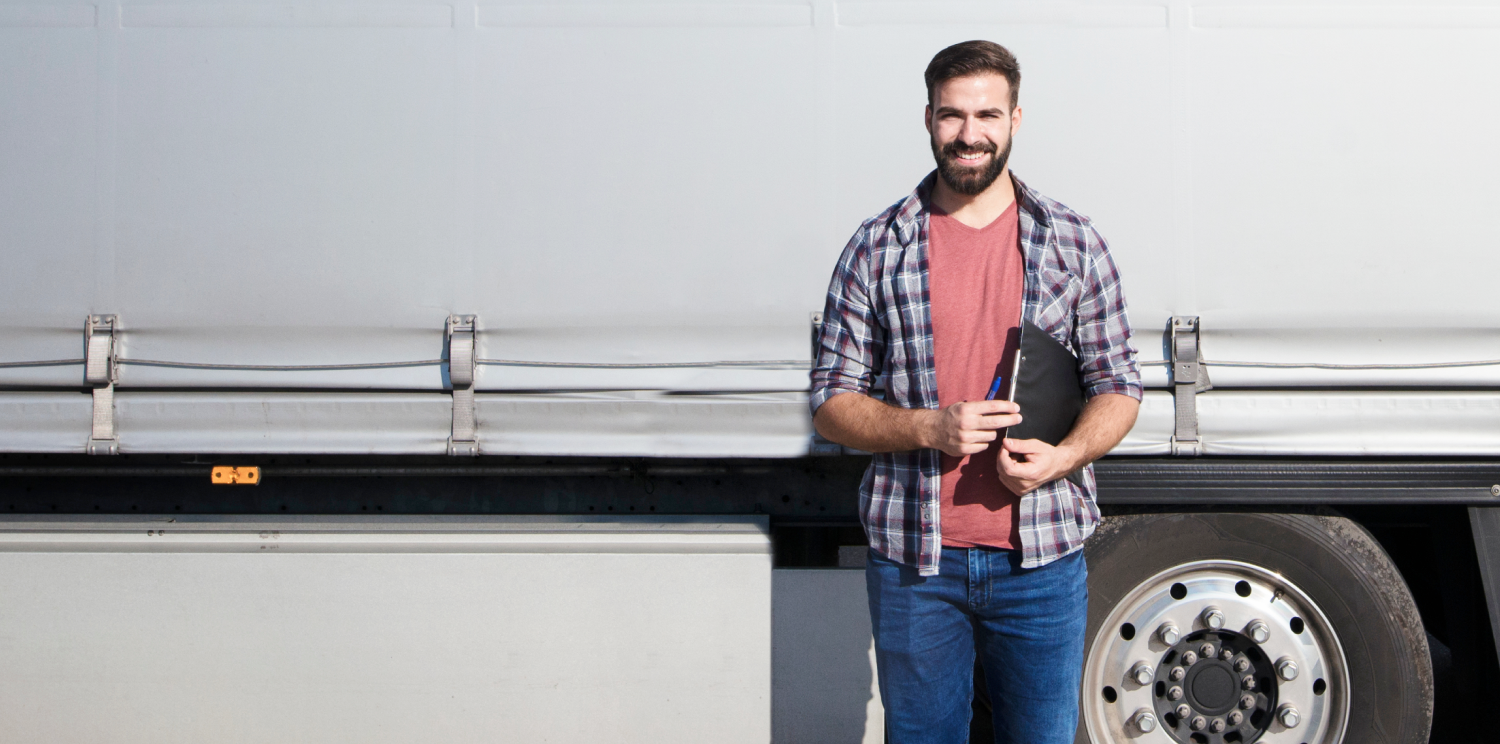

Basic requirements for obtaining a CDL in Washington include:
- You must be at least 18 years of age to have a Washington CDL and drive a commercial vehicle in Washington State
- You must be at least 21 years of age to operate a commercial vehicle, transport hazardous materials, or transport passengers outside of Washington State.
- You must not have more than one driver's license and your license must not be suspended, revoked or revoked in Washington or any other state
- You must meet the medical requirements of the Federal Motor Carrier Safety Regulations
- You must obtain a commercial driver's permit (CLP) in Washington
- You must prove your citizenship in Washington State and be authorized to work in the United States by presenting legal identification, which may include a Social Security card, birth certificate, or green card.
- You must certify that you are not subject to any type of CDL driver disqualification.
- You must be able to speak and read English
Who needs to get a CDL in Washington?
In Washington State, as throughout the United States, certain categories of vehicles require the driver to have a commercial driver's license (CDL). This document is a key condition for those who plan to engage in professional activities in the field of transportation of goods or passengers You will need a CDL to operate any of the following vehicles:- Vehicle without trailer with a gross vehicle weight rating greater than 26,000 pounds
- Combination vehicle with a gross vehicle weight rating of over 26,000 pounds, towing a trailer with a gross weight rating of over 10,000 pounds
- A passenger car designed to carry 16 or more people, including the driver
- A vehicle of any size requiring a special hazardous materials (Hazmat) label, or carrying a selective agent or toxin listed in the Code of Federal Regulations ( 42 CFR Part 73 )
What are the differences between the different CDL classes in Washington?
In Washington State, commercial driver's licenses (CDLs) are divided into three main classes: A, B, and C. These classes determine the types of vehicles a driver can operate based on their size, weight, and purpose.- Class A:
- Class B:
- Class C:
Any combination of vehicles with a gross vehicle weight of 26,001 pounds or more with a trailer(s) of 10,000 pounds or more.
Any single vehicle with a gross vehicle weight of 26,001 pounds or more, or any such vehicle towing another vehicle with a gross vehicle weight of 10,000 pounds or less.
Any vehicle or combination of vehicles not meeting the definition of Class A or Class B, designed to carry 16 or more passengers (including the driver), or any vehicle required by federal regulations to be marked for the transport of hazardous materials
Knowledge and Skill Requirements to Obtain a CDL in Washington
Each basic knowledge test covers the 20 general areas specified in 49 CFR 383.111(a). The knowledge test must contain at least 30 questions. A separate test for drivers wishing to operate a CMV with air brakes in Washington must cover the 7 areas specified in 49 CFR 383.111(b).To successfully pass the knowledge tests (general and endorsement), candidates must answer at least 80 percent of the questions correctly.
You can take the Free Washington CDL Test on our website to test your knowledge.
To successfully pass the Washington CDL test, candidates must successfully complete all required skills (listed in 49 CFR 383.113 - 49 CFR 383.123). The skills test must be conducted in a vehicle appropriate to the type of vehicle the applicant is driving or intends to drive. Federal standards require Washington state to issue a CDL to certain commercial vehicle drivers only after the driver passes knowledge and skill tests administered by the state. The vehicle you take the CDL test in must also be appropriate for the type of vehicle the driver intends to drive. Restrictions are placed on obtaining a Washington CDL if the driver takes the skills test in a vehicle that lacks critical equipment found in certain types of CMVs. Therefore, to avoid restrictions, drivers should take the test in the same type of vehicle for which they want to obtain a Washington CDL. Drivers are required to obtain and hold a CDL in Washington if they operate in interstate, intrastate, or foreign commerce and operate a vehicle that meets one or more CMV classificationsMedical requirements for obtaining a CDL license in Washington
All commercial drivers of interstate commerce vehicles with a maximum gross vehicle weight rating greater than 10,000 pounds are required to obtain and maintain a Medical Examiner Certificate (ME Certificate). Washington CDL holders must provide SDLA with a copy of their ME certificate Self Certification All Washington CDL holders must declare to their State Driver Licensing Agency (SDLA) that they are working or intend to work commercially in only 1 of 4 possible categories using their CDL. This process is called self-certification. The four categories are:- Interstate Non-Exempt: You are a non-exempt interstate driver and must meet the requirements of your federal DOT medical card (for example, you are "non-exempt").
- Interstate Exceptions: You are an interstate exempt driver and do not need to meet DOT federal medical card requirements.
- Intrastate Unlicensed: You are an Intrastate driver and must meet Washington State medical requirements.
- Intrastate Exceptions: You are an intrastate exempt driver and do not need to meet Washington State's medical requirements.
- Distance visual acuity of at least 20/40 (Snellen) in each eye without corrective lenses or visual acuity separately with correction up to 20/40 (Snellen) or better with corrective lenses;
- Binocular distance visual acuity of at least 20/40 (according to Snellen) in both eyes with or without corrective lenses;
- Visual field of at least 70 degrees in the horizontal meridian in each eye;
- Ability to recognize the colors of traffic lights and devices displaying standard red, green and yellow.
- Your blood pressure should be below 140/90.
- Stage 1 hypertension, blood pressure from 140/90 to 159/99: medical certificate valid for 1 year, must be renewed every 12 months.
- Hypertension stage 2, blood pressure from 160/100 to 179/109: medical certificate for 3 months. Complete disqualification if blood pressure is not controlled after 3 months until it is controlled. Must be renewed every 12 months.
- Stage 3 hypertension, blood pressure 180/110 or higher: automatic disqualification, 6 month certificate once blood pressure is under control, must be renewed every 6 months.
- Blood pressure can be controlled with or without medication.
Who is exempt from obtaining a CDL in Washington?
According to FMCSA regulations, only military personnel with comparable safe driving experience are exempt from obtaining a CDL. States have discretion to grant exceptions for others:- Washington Military Vehicle Operators:
- Agricultural equipment operators from Washington:
- Fire Equipment Operators in Washington:
- Washington Recreational Vehicle Operators:
- Tax exemption for Washington Township or government employees:
- Be under the influence of alcohol as prescribed by state law.
- Be under the influence of a controlled substance.
- Alcohol concentration of 0.04 or greater while administering CMV.
- Refusing to submit to a breathalyzer test as required by a state or jurisdiction under its implied consent laws or rules
- Leaving the scene of the incident.
- Use of a motor vehicle to commit crimes other than crimes involving the manufacture, distribution, or dispensing of a controlled substance.
- Speeding is any speed exceeding 15 miles per hour or more over the regulated or posted speed limit.
- Reckless driving as defined by state or local laws or regulations.
- Incorrect or erroneous lane change.
- Follow the car ahead too closely.
- Violation of state or local laws relating to the control of motor vehicle traffic.
- The driver does not have to always stop, but he does not have time to slow down and make sure that the tracks are clear of the approaching train.
- The driver is not required to always stop, but cannot stop before crossing if the tracks are not clear.
- The driver is always required to stop, but does not stop before entering an intersection.
- The driver does not have enough space to drive completely through the intersection without stopping.
- The driver does not obey the traffic control device or the directions of a law enforcement officer located at the intersection.
- The driver cannot control control at an intersection due to insufficient ground clearance.
- CDL Application Fee: This is the initial fee that must be paid to begin the licensing process
- Medical Examination: Required to confirm physical fitness to operate a commercial vehicle. Cost may vary depending on the medical institution
- Theoretical and Practical Examination Fees: These fees may apply per examination attempt
- Training Course Fees: Although courses are not always required, we still offer training at our training center to increase your chances of passing the exams
Washington State should exempt persons operating vehicles for military purposes from CDL driver requirements. This exemption applies to active duty military, reservists and National Guard members. This exception does not apply to US Reserve technicians.
Military members who work or have worked within the last year (12 months) in a military position that requires driving a military vehicle equivalent to a commercial motor vehicle (CMV) and who wish to drive a CMV in civilian life may apply for a waiver of the test. knowledge of driving rules to obtain a CDL.
Coveres actual farm-to-market transactions, not commercial grain transporters. Drivers must be 21 years old and the vehicle must have farm plates. Farm workers are not required to have a CDL to operate vehicles:
Controlled and managed by the farmer, his family member or employee. Used to transport agricultural products, equipment or materials to or from the farm. Used within 150 air miles of the farm. Used in nursery or agricultural work. Not used in the activities of a contract road carrier.Those who operate CMVs necessary to preserve life or property, or perform emergency governmental functions, have signals that can be seen and heard and are not subject to normal traffic laws. These include fire trucks, foam or water transport vehicles, police SWAT vehicles, ambulances and any other emergency vehicles.
Drivers operating recreational vehicles (RVs) for their own non-commercial use may be exempt from CDL requirements.
Many states have special exceptions to the CDL rules that apply to workers in smaller cities or to state and local government employees in general. You need to check your state's rules
Washington CDL Disqualification
FMCSA regulations define certain circumstances that disqualify a driver from lawfully operating a CMV, temporarily or permanently. Issues leading to license revocation apply only to CDL or CLP holders or those who are required to have a CLP or CDL in the vehicle they drive. Tickets, DUIs, and other legal issues that arise before a driver obtains a CDL or CLP or for persons who do not have a CDL or CLP and are not required to have one, affect drivers only as they relate to company policies other than obtaining a Hazmat certification. In extreme cases, the FMCSA may disqualify drivers deemed “dangerous” and remove them from driving. Some circumstances will result in a lifetime disqualification for driving a CMV, while others may be reinstated after 10 years. A driver who uses a CMV while committing a felony involving the manufacture, distribution, or dispensing of a controlled substance will have his or her driving privileges suspended for life without possibility of reinstatement. Disqualification for serious offensesCost of obtaining a CDL in Washington
The cost of obtaining a CDL in Washington State can vary depending on a number of factors, including the type of license, training courses required, test fees and other associated costs. You will expect the following costs when obtaining your CDL in Washington:Conclusions
In conclusion, the process of obtaining a commercial driver's license (CDL) in Washington State is highly regulated and requires careful consideration to ensure that all required conditions are met. Candidates will need to go through a series of steps, including a medical examination, studying specialized material, passing theoretical and practical exams, and paying applicable fees. The cost of obtaining a CDL may vary depending on the additional training required and the number of times you try to pass the exams, but the investment of money and effort is well worth the wide range of opportunities available to CDL holders in the transportation industry.
Ultimately, the process of obtaining a CDL in Washington State requires time, patience, and dedication. Successful completion not only expands the professional boundaries of drivers, but also contributes to overall safety and efficiency on the roads. No matter your end goal, whether it's working for yourself or joining a major trucking company, a CDL is your most important asset on your path to success in the commercial trucking industry.
Related Articles
Nine years of experience
and 6000+ graduated students with CDL
Feels free to ask us any question about getting CDL at USA.




